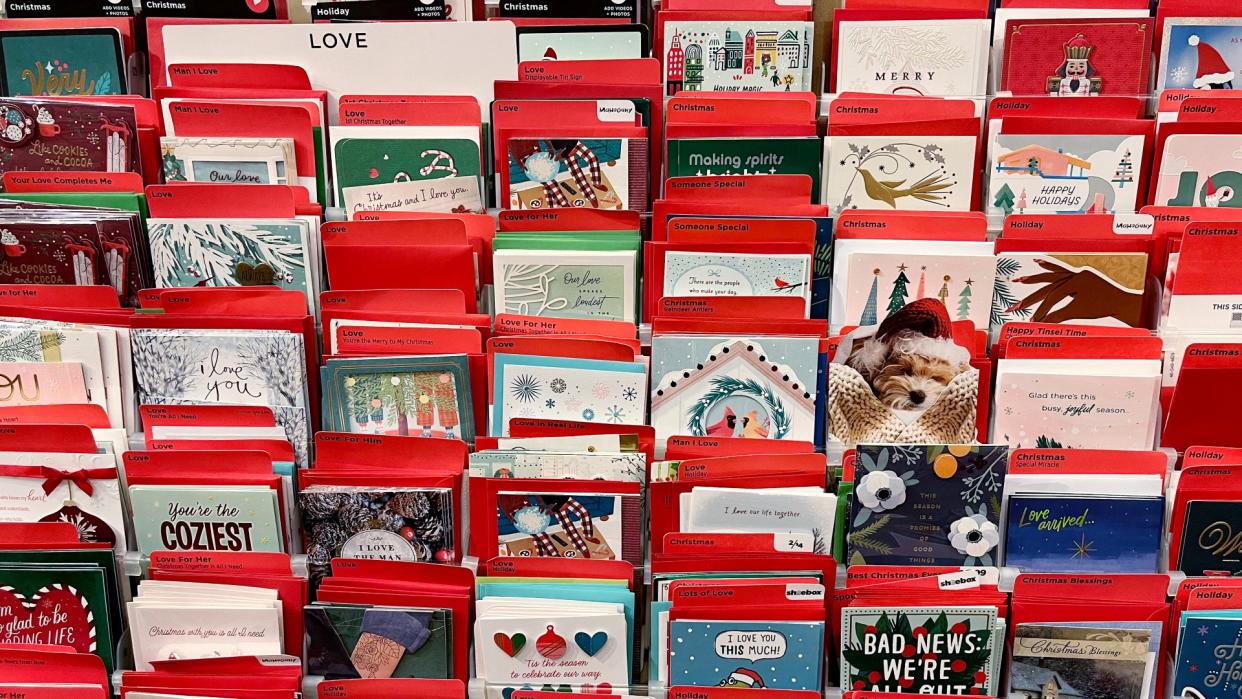The Christmas round robin: return of the much-mocked missive?

Simultaneously quaint and cringe-worthy, the much-mocked Christmas round robin is making a surprise comeback, with more millennials sending festive cards than a generation ago.
"Those double-sided sheets of A4 first fluttered out of Christmas cards some time in the mid 1980s," said Martha Gill in The Guardian, "around the point that the home computer began conquering the world". From then on, "boasting, once costly and laborious, could suddenly be mass produced".
Since then they may have developed the "worst reputation" as narratives of family news "mocked for being both boring and boastful", admitted Henry Mance in the Financial Times. But there is still "a precious tradition here, which predates social media and exceeds it".
'Allow relationships to survive modern life'
On the surface, sending physical Christmas cards at all may seem at odds with the modern digital age we live in. A recent poll of Brits cited in the South Wales Argus named the practice among "the top 10 traditions in danger of dying out alongside putting pennies in a Christmas pudding and carol singing".
Christmas cards may be more associated "with mums" and "with older people", admitted Eleanor Peake on the i news site, "but this stereotype is changing".
Research from the Greeting Card Association (GCA) found that 18- to 34-year-olds were sending more cards than a generation ago. In total, Royal Mail estimates it delivers 150 million cards during the Christmas period, with each person on average sending and receiving 17.
The peculiar appeal of round robin letters is precisely that they "allow relationships to survive the distances and distractions of modern life", said Mance.
"They are the friendship equivalent of a mid-ranking CIA official visiting Beijing for talks: they can pave the way for a proper meeting. Yes, they can be mundane – but that's because our lives are mundane. Most of our successes and failures fade when placed in cold black-and-white."
'Predicting our present era'
The reasons for the round robin's demise are "fairly obvious", said Tom Nicholson also in The Guardian. "If I want to know what your kids are up to and where you went on holiday, Instagram will tell me. If I want your take on the state of the nation, I'll check which James O'Brien clips you've retweeted. If I ever want to know how your career's going, I'll snoop on your LinkedIn."
Yet they also "predicted our present era", said Gill. "For what was once confined to a single letter at Christmas now permeates society at large. Untrammelled boasting, until recently so gauche, has in the span of a decade or so become perfectly acceptable, at least on social media."
Mance suspects that "part of the hostility to round robins is that they seem forced, and we want our relationships to feel spontaneous". But "modern life makes all this implausible" and he is "prepared to bet that the average round robin has fewer humblebrags than the average Instagram account".
Perhaps this is why this much-maligned Christmas tradition is making a surprise comeback.

